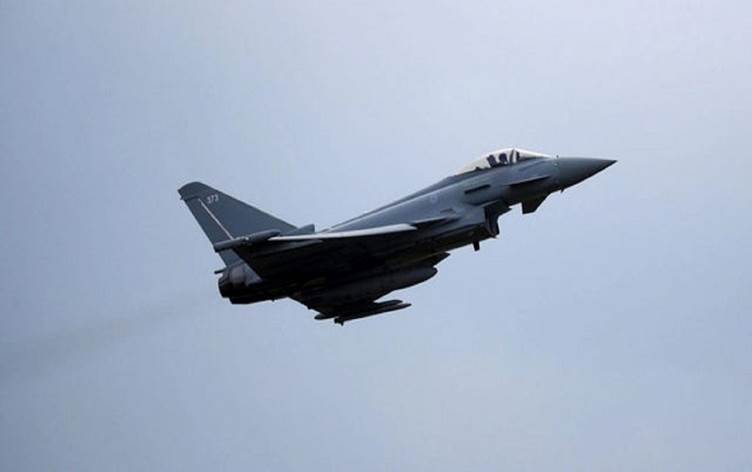ERBIL, Kurdistan Region - The British government on Saturday announced its first counter-Islamic State (ISIS) airstrikes in seven months as part of the continued global coalition campaign against the extremist group.
In a "successful operation" on April 10, a pair of British Royal Air Force Typhoon jets struck ISIS militants in Tuz Khurmatu, south of Kirkuk, "removing several Daesh fighters from the battlefield and further degrading the terrorist movement.”
"The pair of Typhoons, assisted by an RAF Reaper aircraft, identified Daesh terrorists occupying a group of fortified buildings in an isolated location west of Tuz Khurma[tu], known to be inhabited by active terrorist commanders and fighters," read an update published on an government page dedicated to air strikes against the group.
"The aircraft conducted a thorough check of the area for non-combatants, before using a combination of precision guided bombs to destroy the buildings," the statement read.
"The surveillance aircraft continued to scan the area, confirming that all weapons had struck their targets and there was no collateral damage," it added.
The last airstrike to be conducted by British forces was in September, when "a pair of Typhoons responded to reports that a small group of Daesh extremists had been engaged in fighting with Iraqi security forces."
Tuz Khurmatu is a disputed city claimed by both Erbil and Baghdad and is home to Arabs, Kurds, and Turkmen. Iraqi forces have taken charge of the city’s security since October 2017, when Kurdish Peshmerga forces were forced out of the region following the independence referendum.
ISIS was declared territorially defeated in Iraq in December 2017 and in Syria in March 2019. However, insurgency has continued in both countries, exploiting security vacuums between rival forces.
Iraq’s disputed territories have seen a recent uptick in insurgent activities, including bombings, ambushes, kidnappings, extortion, and arson.
Members of the terror group killed five Iraqi security force members in Diyala and Kirkuk last week. A police officer was also killed in an April 12 attack on a checkpoint in Hawija, western Kirkuk.
Earlier in the month, two Peshmerga fighters were killed in Kolajo, Garmiyan, and two Popular Mobilization Forces (PMF, Hashd al-Shaabi) fighters were killed in an ISIS strike in Tuz Khurmatu on April 9.
The recent wave of ISIS attacks also comes as the US and the international anti-ISIS coalition draw down and consolidate their missions in Iraq and Syria.
Britain has been a key partner of US-led coalition to defeat ISIS. Their troops have been in Iraq since 2014.
On March 19 the UK government withdrew some of its service personnel from Iraq back to the United Kingdom after the international coalition instituted a precautionary 60-day pause in training operations in response to the coronavirus outbreak.
Key personnel have remained at their posts across the country, the UK Ministry of Defence said in a statement.
The RAF has deployed more than 4,400 bombs and missiles in the five-year war with ISIS, according to the BBC.
A recent Pentagon Inspector General report, covering October 1 to December 31, said ISIS remnants are still active, capable of conducting small-scale attacks, and enjoy freedom of movement in Iraq’s isolated mountains and deserts.










Comments
Rudaw moderates all comments submitted on our website. We welcome comments which are relevant to the article and encourage further discussion about the issues that matter to you. We also welcome constructive criticism about Rudaw.
To be approved for publication, however, your comments must meet our community guidelines.
We will not tolerate the following: profanity, threats, personal attacks, vulgarity, abuse (such as sexism, racism, homophobia or xenophobia), or commercial or personal promotion.
Comments that do not meet our guidelines will be rejected. Comments are not edited – they are either approved or rejected.
Post a comment